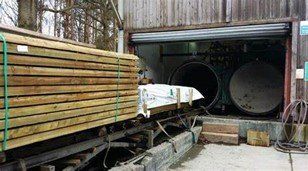Working from Home versus the Office.
Now covid restrictions have ended the number of people still working from home is considerably larger than before the pandemic.

The benefits of working from home are well documented – no more (often long) commutes, no travel costs, reduced over heads, increased productivity and more flexibility being some of them. Technology has made it possible for us to stay connected to the office and communication between colleagues can be more effective with less interruptions than can happen in the workplace. Employers have also benefitted from allowing staff to continue to work from home either on a full time or office/home split basis not just due to the reduced costs and increased productivity, but it has been suggested there are fewer sick days taken from people working from home which can only be good for both the business and staff wellbeing.
So while we can all see there are advantages for working from home it doesn't suit everyone. Some employees might prefer the routine and structure that a workplace environment provides them along with the interaction with other colleagues. Someone living on their own for example may find home working isolating without the face-to-face contact of a workplace. Support required to complete the job role may feel harder when not working alongside a manager or other colleagues. Not having the physical space required to create a suitable dedicated working area can have a negative effect as can household/ family life interruptions.
A hybrid approach can provide a solution, splitting time between home and the workplace and while the kitchen table became a temporary office the need for a dedicated workspace is on the up.
A garden office/building can provide a dedicated workspace and come in lots of shapes and sizes so you can choose one that doesn’t overwhelm the space you have available. https://beaverlogcabins.co.uk/garden-buildings/garden-offices/






